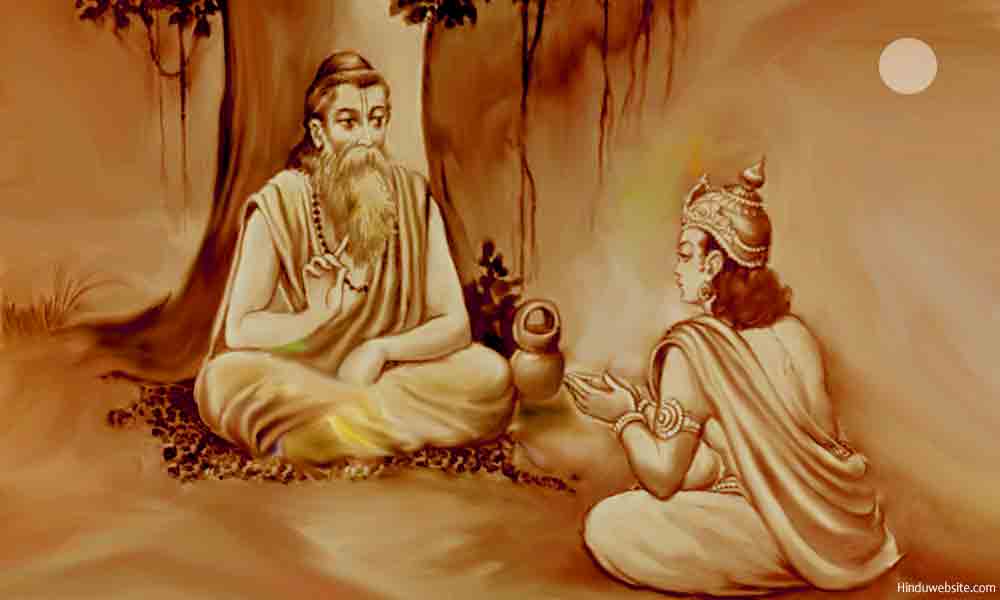
Ashtavakra Samhita, Chapter 1, Verse 17

Contents
Index, Verse 1, Verse 2, Verse 3, Verse 4, Verse 5, Verse 6, Verse 7, Verse 8, Verse 9, Verse 10, Verse 11, Verse 12, Verse 13, Verse 14, Verse 15, Verse 16, Verse 17, Verse 18, Verse 19, Verse 20
Verse 17
nirapeksho nirvikaro nirbharah
sheethalaashayah
agaadhabudhhirkshubdo bhava chinmathravaasan
Translation
Without expectation (or dependence), without form, without weight or measure, a reservoir of coolness, unfathomable intelligence, undisturbed is the dweller of the subtle space.
Meaning
More light on the nature of the Self
These are the attributes of the Self. The Self is indescribable, and without qualities. Therefore, you may wonder how Ashtavakra listed them as the qualities or the descriptions of the Self. As stated before, they are not qualities as such but what you are not at present so that you may know what is lacking in you. They suggest to the possibilities that exist in the transcendental plane, and what you may attain upon liberation. These qualities are already present in you. They do not manifest because you are covered with impurities. Knowing these attributes is helpful, since you can meditate upon them and understand their significance about your current state of existence. Let us examine them.
The self is without expectations. Apeksha means interest or expectation. Nirapeksha means having no expectation. Why has the Self no expectations? Is it because it is inert or inactive? The answer is that the Self seeks nothing because it is complete and perfect. It does not have any need for anything. It is complete in itself, like zero. Whether you add to it or subtract from it, it remains the same. You experience need, desire and expectations when you are incomplete or imperfect. Then, through seeking and striving you try to fulfill yourself. Since the Self exists in all, it does not require anything.
The Self is perfect, without distortions and modifications (nirvikara) because it is free from the impurities of Nature and gunas. Besides, it is without form. Hence, it is free from distortions. There can be distortions in your thinking, consciousness, perceptions, memory, understanding, intelligence, and knowledge because we subject to egoism, desires, ignorance and delusion. They are largely responsible for our problems and suffering.
The Self is a repository of coolness or pleasantness. It does not react, become angry, or show any emotions. It is completely stable and peaceful. Since it is free from gross and subtle bodies and has no need for the prana, it does not radiate any heat. Even though it is effulgent like the bright sun, it radiates coolness, like the bright moon. Hence, the description of the Self as the repository of coolness (sheethalasaya) is very appropriate. Sheethalasaya also means the moon, and a vessel containing sandal paste. Both radiate coolness and create pleasant feelings in the mind.
The Self has unfathomable intelligence (agadha buddhi). A little of it becomes reflected in our consciousness and manifests as natural intelligence (buddhi). Since the Self is infinite, all pervading and all knowing, its intelligence has to be infinite also. The Self is immutable. Since it is free from desires and attachments, it is also free from suffering and disturbance (akshubda). Suffering is for the mind and the body, not for the Self, which is always blissful and satisfied in itself. Finally, the Self is subtle and invisible. It resides in the subtlest plane. Hence, it is called the chinmatra vasan.
Suggestions for Further Reading
- Om, Aum, Pranava or Nada in Mantra and Yoga Traditions
- Brahmacharya or Celibacy in Hinduism
- Atheism and Materialism in Ancient India
- Solving the Hindu Caste System
- How To Choose Your Spiritual Guru?
- Creation in Hinduism As a Transformative Evolutionary Process
- Wealth and Duty in Hinduism
- Do You Have Any Plans For Your Rebirth or Reincarnation?
- Understanding Death and Impermanence
- Lessons from the Dance of Kali, the Mother Nature
- Letting your God live in You - The True Essence of the Hindu Way of Life
- prajnanam brahma - Brahman is Intelligence
- Maslow's Hierarchy Of Needs From The Perspective Of Hinduism
- The Definition and Concept of Maya in Hinduism
- The Meaning of Nirvana
- Self-knowledge, Difficulties in Knowing Yourself
- Hinduism - Sex and Gurus
- The Construction of Hinduism
- The Meaning and Significance of Heart in Hinduism
- The Origin and Significance of the Epic Mahabharata
- The True Meaning of Prakriti in Hinduism
- Three Myths about Hinduism
- What is Your Notion of God?
- Why Hinduism is a Preferred Choice for Educated Hindus
- Essays On Dharma
- Esoteric Mystic Hinduism
- Introduction to Hinduism
- Hindu Way of Life
- Essays On Karma
- Hindu Rites and Rituals
- The Origin of The Sanskrit Language
- Symbolism in Hinduism
- Essays on The Upanishads
- Concepts of Hinduism
- Essays on Atman
- Hindu Festivals
- Spiritual Practice
- Right Living
- Yoga of Sorrow
- Happiness
- Mental Health
- Concepts of Buddhism
- General Essays